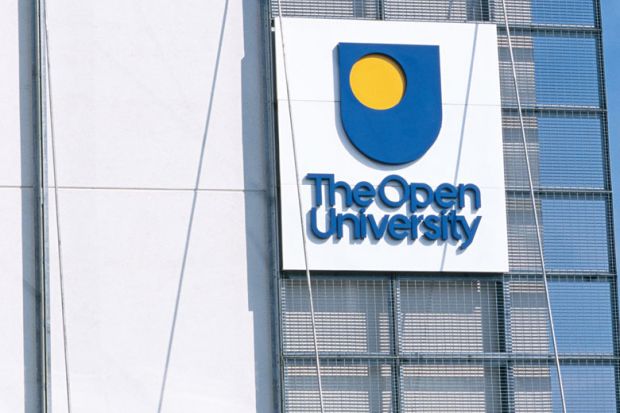A former law lecturer who has raised tens of thousands of pounds to bring an unfair dismissal case against the Open University has claimed that universities remain “largely oblivious” to their academic freedom responsibilities, despite recent legislation.
Almut Gadow’s case has been championed by critics of universities who say institutions have endemic issues with free speech and academic freedom. Her crowdfunder, which has raised its initial target of £70,000, is being supported by the Free Speech Union.
She alleges that she was fired from the UK’s biggest higher education provider for questioning gender identity-based changes to the curriculum.
The OU said her dismissal for gross misconduct was upheld on appeal and that it rejected the “offensive and spurious allegations” she has made.
Her case focuses on the university’s law school which – like many academic departments – has been attempting to “liberate” its degree programmes. Dr Gadow said this included instructions to teach students about diverse gender identities and to use the preferred pronouns of offenders in case studies. She objected to this, saying it conflicted with a lawyer’s role of focusing on the facts of a case and was a “distraction” for students.
“I don’t object to some people having this agenda in the same way as I don’t mind people having whatever politics they choose to,” Dr Gadow told Times Higher Education.
“What I mind is academic institutions feeling that they can force academics to become conduits of that agenda. That’s what I am trying to challenge.”
Dr Gadow said she had repeatedly attempted to question the changes, including on an online staff forum, but her posts were removed by management.
“Questioning what is in module materials has always been a part of what tutors do,” said Dr Gadow, who worked for the OU for nearly a decade.
“Normally when one raises these kinds of issues, provided you do it courteously, the answer would always be, ‘Thanks, we’ll have another look at it.’
“From the very first time I raised issues of gender, the answer was, ‘We will not change any material in this regard full stop, and this is the last thing we will say about it.’”
The case comes after the passing of the Higher Education (Freedom of Speech) Act, which created a new free speech champion post within the Office for Students, now held by Arif Ahmed, and handed the regulator new powers to enforce free speech responsibilities. Dr Gadow said “time will tell” whether this would have made a difference to her case.
“I could have gone to the free speech tsar, and he certainly could have intervened to some extent,” Dr Gadow said. “I know some academics think he will go in and sort it all out, but if you have ever looked at regulation, you will know that is not really likely.
“Even where a regulator finds one of the entities it regulates to be breaking the law, in the overwhelming majority of cases they do no more than provide words of advice.”
Universities can also be sued under the new act when it fully comes into force, but Dr Gadow’s case instead draws on Article 10 of the European Convention on Human Rights and the UK’s Equality Act in an attempt to entrench academic freedom protections in employment law.
“In theory, it is already the case that human rights law protects academic freedom to a very high degree,” she said. “But it has never been put before a judge, so in practice universities are largely oblivious to this.”
A spokesperson for the OU said: “Almut Gadow was dismissed after a finding of gross misconduct. The dismissal was upheld at an appeal hearing chaired by an independent and senior barrister.
“Since being dismissed, Almut Gadow has made a series of offensive and spurious allegations online which we reject in the strongest of terms. We welcome the opportunity the tribunal hearing provides to present our evidence about the facts of this case.”
Register to continue
Why register?
- Registration is free and only takes a moment
- Once registered, you can read 3 articles a month
- Sign up for our newsletter
Subscribe
Or subscribe for unlimited access to:
- Unlimited access to news, views, insights & reviews
- Digital editions
- Digital access to THE’s university and college rankings analysis
Already registered or a current subscriber? Login








